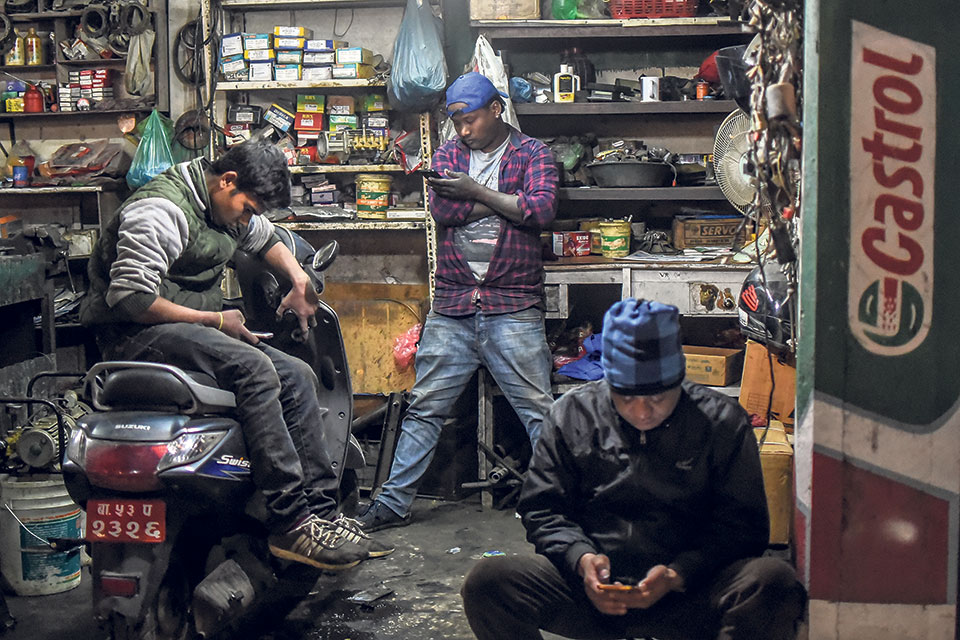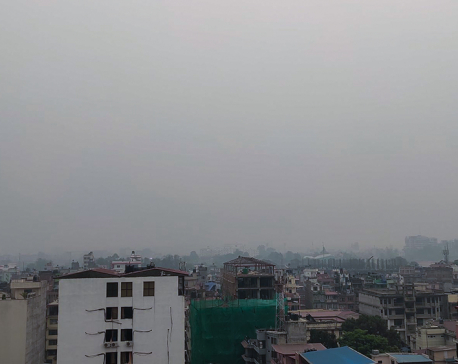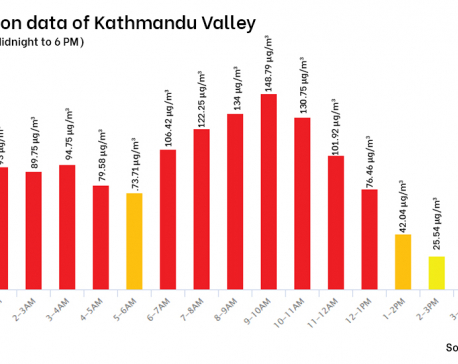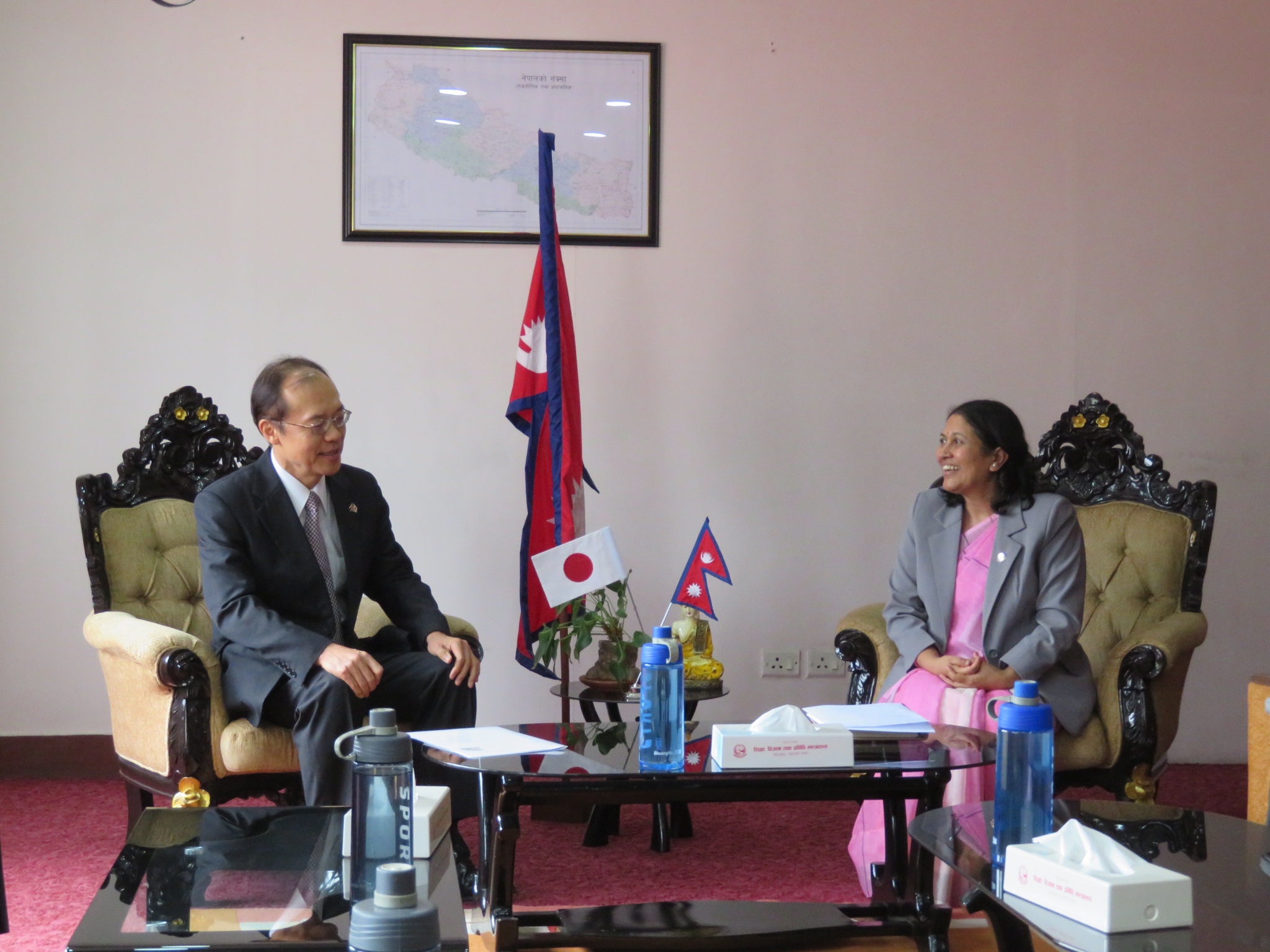
OR
cover story

Kathmandu, for many of us, is home. We are used to its blaring noises, tall buildings, complicated network of roads and, unfortunately, the omnipresent pollution.
But what about those who have just ventured into the valley? Is this bustling city of dreams everything they hoped it would be?
For Sunil Chaudhary, who works at MG Motors Nepal, it was a struggle that he will never forget. He came to the capital for higher studies. Instead of worrying about his grades as every other teenager, Chaudhary’s biggest issue was the language barrier. It wasn’t that he couldn’t speak Nepali but, coming from the Tarai region, his accent was thick. It made him conscious. And he admits that he had to deal with a little racism as well. Soon, he found it uncomfortable to speak in front of a crowd and chose to stay quiet instead.
Another thing that he had a hard time getting used to were the restaurants. It wasn’t just variation in food that scared him, but also how the system worked here. “Back home, we were always told that food is very costly in Kathmandu. So, when I first came here, I never wanted to go to any cafés,” he explained.
According to him, it’s also extremely difficult to find a well-paying, respectable job if you’ve entered the city with the sole mission of earning money. Many of his friends had to face subtle discrimination at office because of their origin as well. Sadly, it isn’t a subject that is talked about much.
“When newcomers are made to feel like outsiders, it’s a severely blow to our self-esteem. We often end up underestimating ourselves for a long time,” he added.
His struggle didn’t end here.
“When I went to find rooms for rent, home owners didn’t trust me. It was only when a few friends vouched for me that I got a place at a boys’ hostel,” he said.
But staying in hostels comes with its own set of struggles. For Anusha Basnet, who came to Kathmandu from Chitwan after her SLC exams, the living situation was never stable. She’d been moving from hostel to hostel until she finally found a room to rent in Baneshwor.
“I lived in a hostel throughout my high school days. And it was frustrating. While it gave me the shelter that I needed, it was also costly and I lost a lot of things in the hostel. Thievery was a common thing and you had to be extremely protective of your belongings,” she said.
Skyrocketing prices and living expenditure were also a challenge for many. Loneliness was another.
Madhu Adhikari made a life altering decision of leaving her hometown, Biratnagar, almost two years ago. She moved to Kathmandu with her husband and two children. While the city has its difficulties, she hadn’t expected this magnitude of change in her routine. Aside from the unbeatable traffic jams, what shocked her was Kathmandu’s communities.
“In Biratnagar, when we said ‘neighbors’, it had a completely different value. Our lands were comparatively bigger, so each house had its own kitchen garden. If you didn’t have enough food in your own yard, you could easily get it from homes around you. They fulfilled our needs and vice versa,” Adhikari told The Week.
Coming to Kathmandu and figuring out that maintaining a kitchen garden was almost impossible was extremely saddening for her. “With two children to feed, it has greatly increased our household expenditure. I had never expected this much money would be spent just stocking up our fridge,” she said.
Anupama Gautam moved to Kathmandu when her two daughters were still very young. “When I first came to Kathmandu from Janakpur, my biggest concern was regarding how I was going to survive. I had a job. But it was barely enough to feed three of us. I had to get my kids through school, and through college, while fulfilling their every other need. It was beyond difficult,” said Gautam. While she didn’t have any issue with the people of the city, it always bothered her when she had to move or look new places for rent.
“Most homeowners tend to look down upon those who don’t have their own properties. It is almost like we are unworthy people. It has always bothered me. It still bothers me. But now that we have a more permanent residence, it’s easier to handle,” she said.
Similarly, Dipesh Ghimire entered the capital from Khotang for higher studies and hope for a new life. “We didn’t have proper education back home or any other infrastructures. In order to get a sick person to the hospital, we had to put them into dokos and take them up the hill. And yes, education in Kathmandu is much better. Hospitals too. But the rent, the household expenditure, and the educational cost don’t let you stay comfortable for long. It is a city, after all,” he said. Like Adhikari, he complains about the lack of spaces for a kitchen garden, even a small one.
Ghimire further added that he was also shocked by the complete apathy that people seemed to have towards others. It seemed like no one really cared about anything. And while that came with its own freedom, it was apparently something that made him feel extremely lonely as well.
“There was no one I could turn to. I had to work hard to build my network of people. It’s still a struggle. But I think I have adapted to it now,” he said.
Like Ghimire, Basnet too felt that people were aloof and there was no one she could turn to for help. “You are largely responsible for yourself. Finding a place to rent, being a single woman with no family, was challenging. Managing expenses in this expensive city is something that I have come to terms with. But the bills still shock me sometimes,” she says.
Roshan Sapkota was very young when he moved to the valley. And yet, he still remembers how claustrophobic he first felt here.
“The streets were always so crowded. There were very few empty grounds. And even those were full of people participating in various programs. I used to get lost all the time,” he said adding that the most shocking thing for him were the buildings.
“In my village, there were no tall houses and very few vehicles would ply on the roads. So, seeing the tall buildings and so many vehicles on the road, no matter what time of the day it was, was fascinating,” he said.
But the experiences he was collecting came with a price. “I used to feel completely lost in this big city. I used to wonder, where have I arrived? I never really thought I would ever fit in,” he said.
Majority of the people The Week spoke were of the unanimous opinion that they might never feel completely at ease in Kathmandu. They simply choose to live here enticed by the ‘promise of a better future’ for themselves and their loved ones.
kumudinipant@gmail.com
You May Like This

Pollution in Valley reduced to some extent due to rainfall, air pollution still at hazardous level
KATHMANDU, April 12: Rain accompanied by lightning has been observed not only in the Kathmandu Valley but also in the... Read More...

Weather in Kathmandu starts to get clear, but air quality is still unhealthy
The PM2.5 level in the Valley has been between 75 and 150 μg/m3, which is considered unhealthy ... Read More...

Sierra Kathmandu to organize five-km run to raise health awareness
KATHMANDU, Feb 7: Sierra Kathmandu, a restaurant situated at Uttardhoka, Lazimpat, is organizing a five-kilometer run in the Kathmandu Valley... Read More...











Just In
- Japanese envoy calls on Minister Bhattarai, discusses further enhancing exchange through education between Japan and Nepal
- Heavy rainfall likely in Bagmati and Sudurpaschim provinces
- Bangladesh protest leaders taken from hospital by police
- Challenges Confronting the New Coalition
- NRB introduces cautiously flexible measures to address ongoing slowdown in various economic sectors
- Forced Covid-19 cremations: is it too late for redemption?
- NRB to provide collateral-free loans to foreign employment seekers
- NEB to publish Grade 12 results next week







Leave A Comment